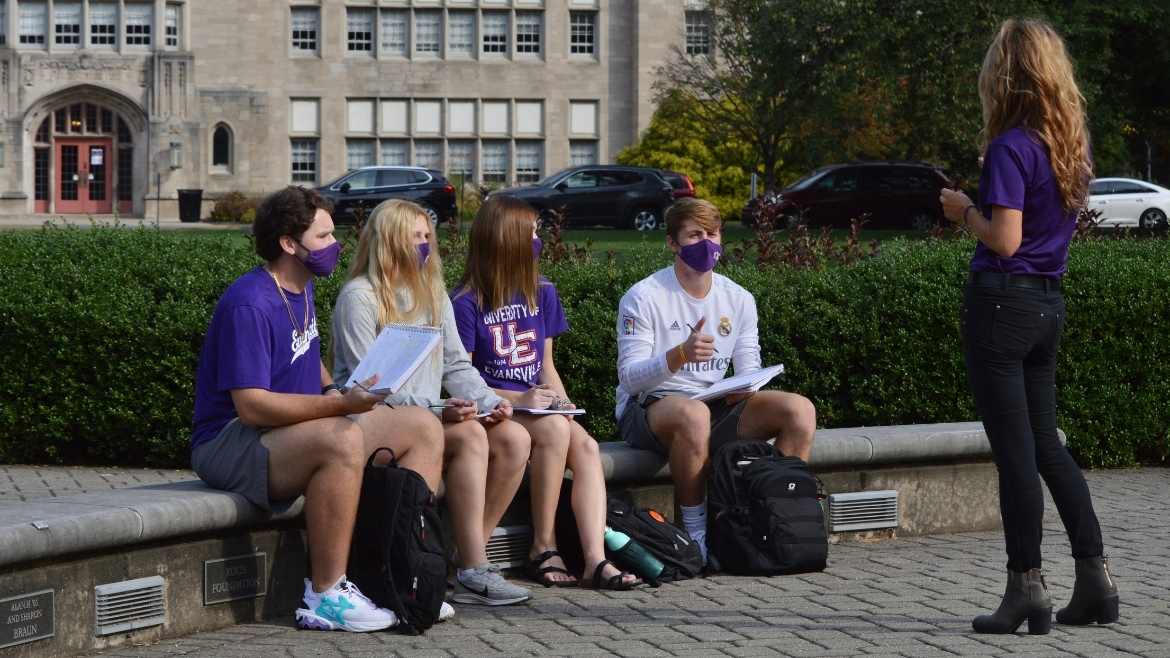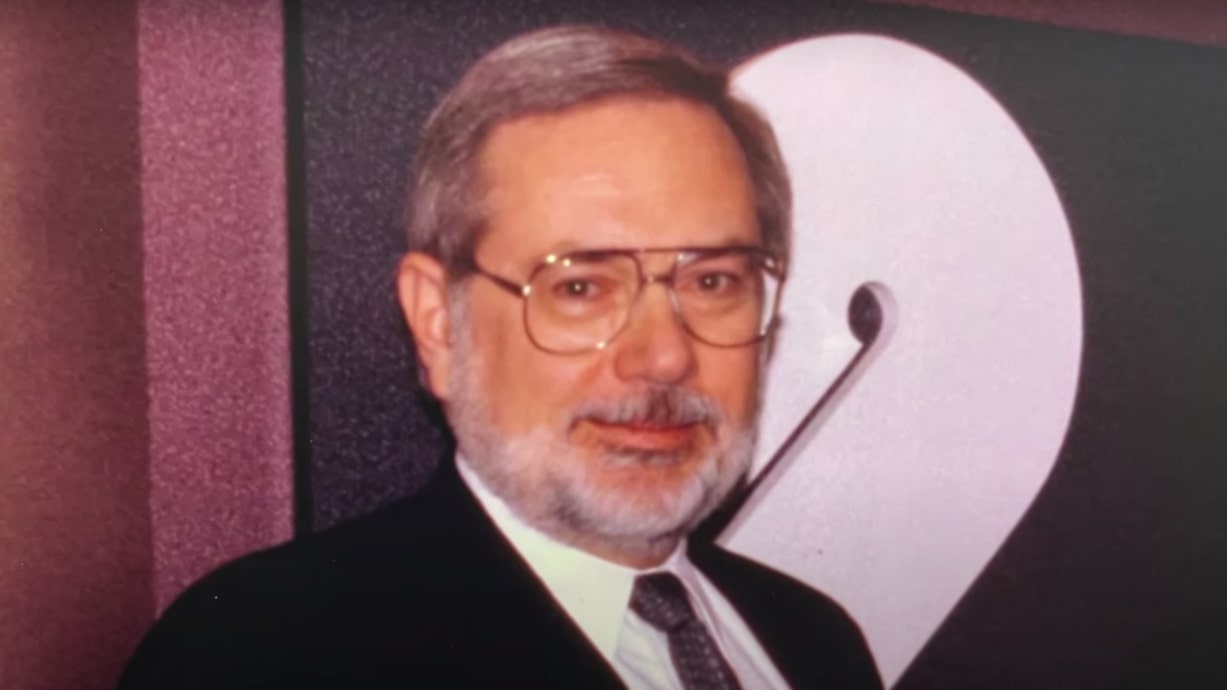WNIN taps college students to highlight untold stories of COVID’s impact on Midwest

Andrew Carter
University of Evansville students in professor Tamara Wandel's journalism ChangeLab class meet with Wandel, standing at right.
WNIN in Evansville, Ind., is collaborating with local college students to take an in-depth look at how the COVID-19 pandemic has affected the Midwest.
The joint effort with the University of Evansville is fueling COVID Between the Coasts, a eight-episode podcast focusing on aspects of COVID-19’s regional impact that have not been covered by national news. Each episode will be 10 to 12 minutes long and will be adapted into a four-minute radio segment.
“We have a stated goal of saying that we promise you won’t hear these pandemic stories anywhere else,” said Steve Burger, one of two WNIN reporters working with students.
Two podcast episodes will provide a broad overview of how COVID-19 has affected Michigan, Illinois, Minnesota, Wisconsin, Ohio, Kentucky and Indiana. The rest will come from WNIN collaborators and cover student athletes, COVID-19 data, essential workers, the medical supply chain and COVID-19 survivors.
From the start of the pandemic in March, Burger said, he knew that local outlets would have to provide the best coverage on the pandemic in the Midwest.
“Because of the historic nature of the pandemic, we believed that the Midwestern story needed to be told by Midwesterners rather than letting the networks and all the outlets from the coasts tell the story,” Burger said.
Students contributing to COVID Between the Coasts are enrolled in UE’s ChangeLab courses, which allow them to work with local organizations and learn outside of the classroom. Six students in a journalism ChangeLab class are conducting research and interviewing potential sources for the podcast, with a focus on outbreaks in workplaces and prisons. Four students in a math ChangeLab class are gathering and analyzing data on cases and the spread of the pandemic. They’re also creating graphics and logos.
WNIN has worked with UE interns before, but this collaboration is the first time the station has worked with ChangeLab courses. Professors and WNIN reporters began planning the collaboration in April.
“I was excited from the get-go, and most of us were,” said Tamara Wandel, who teaches the journalism ChangeLab class.
Nicole Tucker, a sophomore in Wandel’s class, has spent most of this semester working on a story for the WNIN podcast about COVID-19’s impact on student athletes. She has spoken with high-school and college athletes about how the pandemic has jeopardized their recruitment and scholarships.
“With COVID-19, the coaches can’t see you in person, so it’s a lot harder to get recruited,” Tucker said. “And some athletes really need an athletic scholarship. It’s something that they’ve worked for their entire life.”
The ChangeLab course has been challenging, Tucker said, but beneficial. “I do feel like once all of this work gets out there, it will make a difference,” she said. “Especially with what I’m doing with the student athletes, I feel like it hasn’t really been touched on yet.”
Wandel said she wants the collaboration with WNIN to show students how they can make a difference with their work even as young researchers and reporters.
“I hope they recognize that they have the ability to make changes around the nation, even globally,” Wandel said. “They don’t have to wait till they’re in their 30s or 40s or 50s to find a spot where they are able to offer something.”
WNIN’s Burger said the station has already seen the impact of the reporting project. The students’ help has brought WNIN a “tremendous increase in resources,” he said.
“I feel like we might be getting more out of the partnership than they are,” Burger said. “We couldn’t do this without them.”
WNIN will release all eight episodes of COVID Between the Coasts Nov. 16 but is prepared to delay the radio release if election coverage is still inundating the news cycle.






